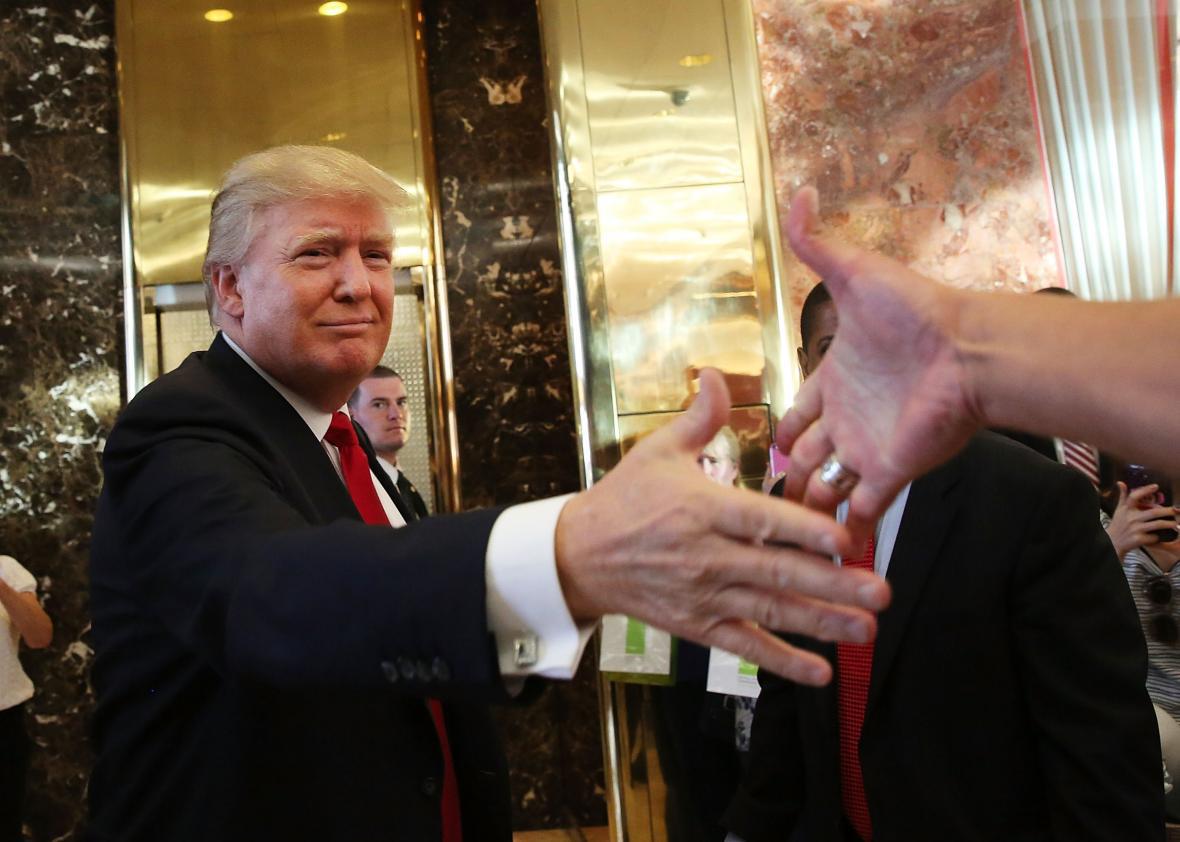While the political world waits, possibly forever, for Donald Trump to release his tax returns, the Washington Post brings us a look at the last known time the real estate tycoon’s returns were made public, in the late 1970s. Trump paid no—as in zero—federal taxes in 1978 and 1979. The then-not-yet-a-billionaire managed to pull off that feat by using a developer-friendly trick that allowed him to report negative income in those years.
The disclosure comes via a 1981 report by New Jersey gambling regulators who had investigated Trump’s finances while he was applying for a casino license in the state. Here’s the relevant snippet (emphasis on him being a loser is all mine):
The Division notes that in 1978 and 1979 Trump incurred no federal income tax liability. In 1979, the lack of such liability is primarily attributable to losses incurred by Trump in the operation of rental properties located at Third Avenue, Fifth Avenue, East 56th Street, East 57 Street, East 61st Street and East 62 Street, New York City, New York. … The foregoing losses were also traced to interest due on amounts owed to Fred C. Trump and Chase Manhattan Bank during 1978 and 1979. Additionally, Trump incurred losses during 1978 and 1979 in the operations of the Park Briar Associates, Regency-Lexington Partners and 220 Prospect Street Company, partnerships in which Trump has an interest.
According to the report, Trump claimed an annual income during the five-year stretch investigators looked at of: $76,210 in 1975, $24,594 in 1976, $118,530 in 1977, negative-$406,379 in 1978, and negative-$3.4 million in 1979. His largest federal tax bill during that time was roughly $42,000 in 1977. As the Post notes, that same decade Trump boasted that he was worth about $200 million. Hmm.
The presumptive GOP nominee’s decision to buck yet another political convention and keep his recent returns under wraps, while he claims to be worth $10 billion, has been controversial among the chattering class but doesn’t appear to have broken through outside the Beltway yet, at least relative to the myriad other Trump scandals and controversies.
Still, the numbers from the 1970s are a helpful illustration of why he may be refusing to release his returns now (at the same time he’s asking potential running mates to turn theirs over). Neither of the two most obvious ways to look at that excerpt above are particularly flattering for the Republican presumptive nominee: Either he was not quite the shrewd businessman he claims he’s always been, or he was acting just like the corporate execs he claims are “get[ting] away with murder” by using every tax loophole they can find. The revelation that he’s not as rich and successful as he says he is would undermine his very identity; his reliance on tax loopholes would make him a hypocrite. On the latter point, though, Trump would shrug—and in some ways already has shrugged—off such criticism. His chief argument for why he can clean up Washington, after all, is that he has benefited so much by it being dirty. He’s also made no secret that he tries “very hard to pay as little tax as possible.”
The release of a White House hopeful’s tax returns is actually an important tradition. It provides voters with a look at everything from how much a candidate gives to charity to where and how they’re making their money. (Those financial disclosures candidates file with the FEC, meanwhile, can be so vague that they border on worthless, particularly for the ultra-rich like Trump.) Still, it’s hard for me to imagine there are a whole lot of voters for whom this will be the deciding issue. I can forgive his xenophobic and dangerous worldview, but I just can’t live with a candidate who doesn’t release his tax returns, said no voter, ever. Trump critics, such as Mitt Romney, have said Trump withholding his returns is “disqualifying,” but that can only really be true if Trump was qualified in the first place.
